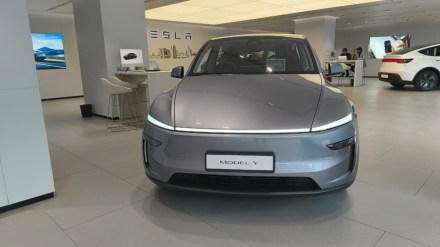Tesla’s long-awaited debut in India has begun on a modest but steady note, with the company selling 60 units of its Model Y in September, the first full month of deliveries after opening bookings in July. While the numbers pale in comparison to Tesla’s global averages, which is around 600 units in just four hours, they are broadly in line with what luxury carmakers typically move in India at similar price points, signalling that it is finding its footing in a tough but growing market.
Outpacing new entrants, competing with luxury rivals
Data from Vahan shows that in the premium EV space, BMW led with 307 units in September, followed by Mercedes-Benz at 95 units and Volvo with 22 units. Vietnamese entrant VinFast, which priced its models significantly lower starting from Rs 17 lakh, managed to sell only six cars. Against this backdrop, Tesla’s 60-unit performance with a single model priced at nearly Rs 60 lakh ex-showroom positions it within striking range of established European luxury players.
A Vinfast spokesperson said that the six units were customer test drive units bought by dealerships and deliveries to customers have only just begun this month.
The Model Y, offered in rear-wheel drive and long-range trims, is Tesla’s sole product for India at present. Bookings for the SUV opened in July and have since crossed 600, but this figure falls short of the company’s internal expectations. Tesla had planned to utilise its annual import quota of 2,500 units, but slower-than-expected demand has led it to scale back, with revised targets now pegged at 350–500 deliveries for the year.
High prices and localisation challenge growth targets
According to analysts, while the early momentum reflects Tesla’s brand pull and pent-up demand among Indian buyers, challenges remain. “Tesla’s entry will expand the premium EV space in India, but without deeper localisation or a wider service network, it will find it difficult to scale beyond niche volumes,” said an industry expert. The lack of local manufacturing means Tesla cannot access government incentives under the Make in India programme, keeping its vehicles at a steep price disadvantage.
At present, Tesla is delivering cars in Mumbai, Delhi, Pune, and Gurugram, supported by two showrooms in Mumbai and Delhi. The company is also working to expand its charging network, with supercharger stations being rolled out in the two metros and complimentary wall connectors offered to new owners. These steps are expected to reassure customers and lay the groundwork for wider adoption.
